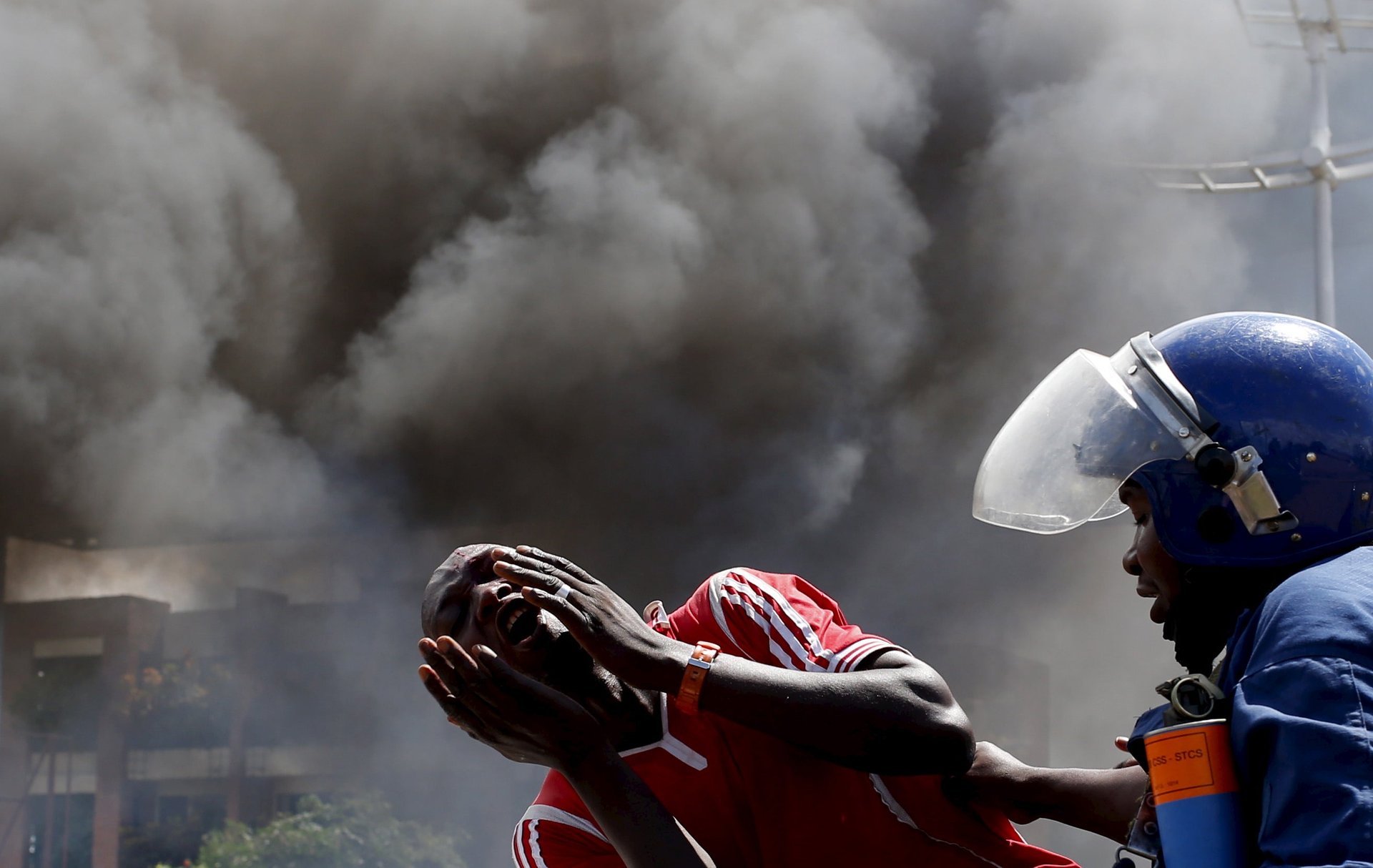Whoever wins the battle of the radio airwaves in Burundi will take all the spoils
Yesterday, it all seemed so straightforward.


Yesterday, it all seemed so straightforward.
The former intelligence chief, major general Godefroid Niyombare, proclaimed the dismissal of president Pierre Nkurunziza, and told his countrymen that he will form a “national salvation committee” to run the country. All this was done in a relatively peaceful manner. In fact, things moved so quickly and so painlessly that some were getting ready to declare this a perfect example of a “good coup.”
But as night fell in Bujumbura, it became unclear who was in control of the country.
Forces loyal to Nkurunziza have pushed back hard against the coup in an attempt to regain control of the country. The head of the country’s army, general Prime Niyongabo, claimed via the country’s state radio: “The coup attempt failed, loyal forces are still controlling all strategic points,” he said.
Earlier, Nkurunziza himself, whose current location is unknown, used the same platform to say, “I condemn that group of coup plotters. I thank soldiers who are putting things in order, and I forgive any soldier who decides to surrender.” He also tweeted his condemnation, an ironic decision considering that a week ago his government had blocked access to social media sites. He asked Burundians to remain calm and that the army had the situation under control.
Coup leaders contradicted this. ”We control virtually the entire city. The soldiers who are being deployed are on our side,” Venon Ndabaneze, a coup spokesman, told Agence France-Presse (AFP).
And soon after, the state broadcaster went off air.
Now, any competent coup leader will tell you that gaining control of the state’s radio broadcaster is the crucial first step towards asserting command over a country. The platform confers the ability to control the message and shape the perception of who is in charge.
And despite the growing popularity of social media, radio is the main source of news for Burundians. So it is unsurprising that, following Nkurunziza’s statement, pro-coup soldiers launched an intense battle to try and gain control of Radio Télévision Nationale du Burundi (RTNB), the only broadcaster with national reach in the country.
But they were repelled. “We had stopped transmitting during the attack. Now the fighting has stopped we can resume. It is still loyalist soldiers who are in control,” station’s director Jerome Nzokirantevye announced on air.
Pro-coup forces confirmed.
Earlier, the popular private radio station Radio Publique Africaine, where on Wednesday Niyombare had proclaimed the dismissal of President Nkurunziza, was burnt down.
So you want to know who is in charge in Burundi? Pay close attention to whoever is in control of the airwaves. Because the one that wins this battle stands a pretty good chance of emerging victorious.